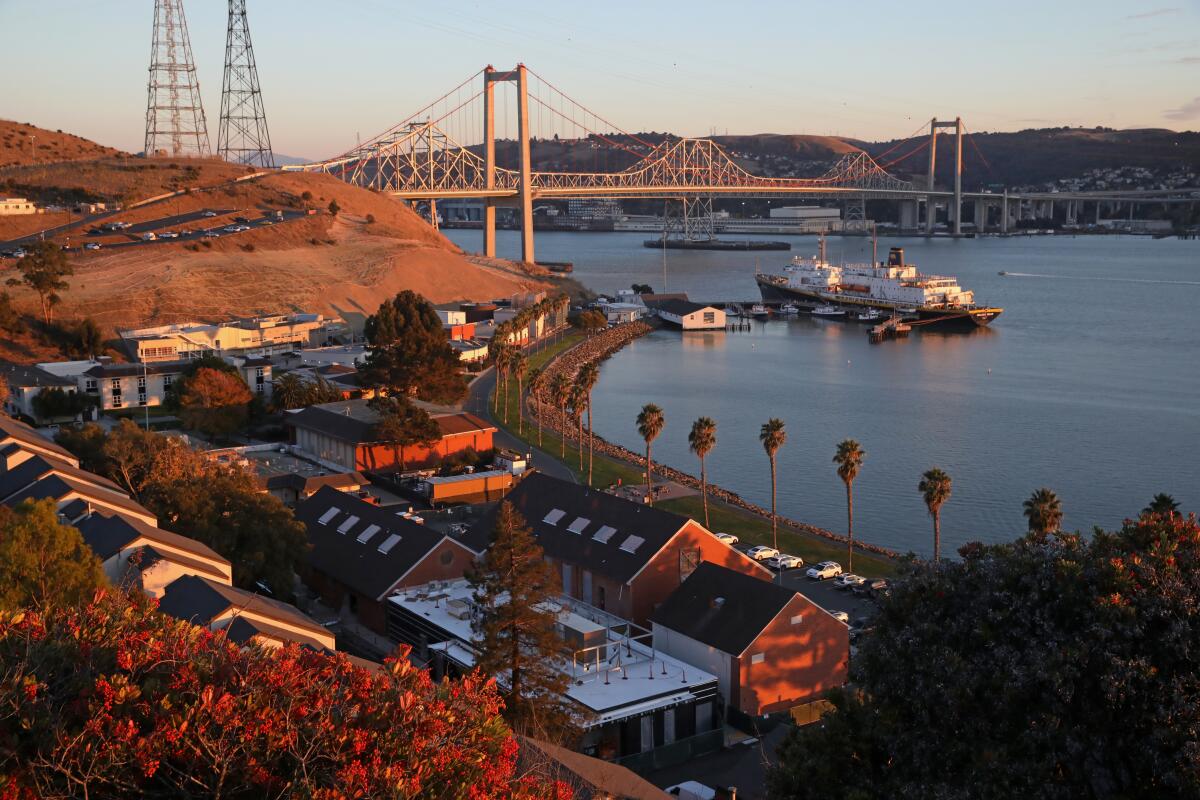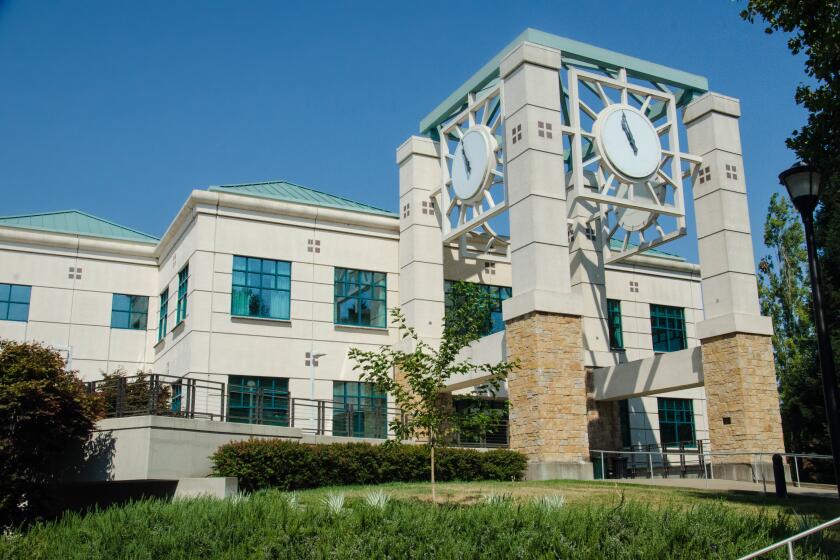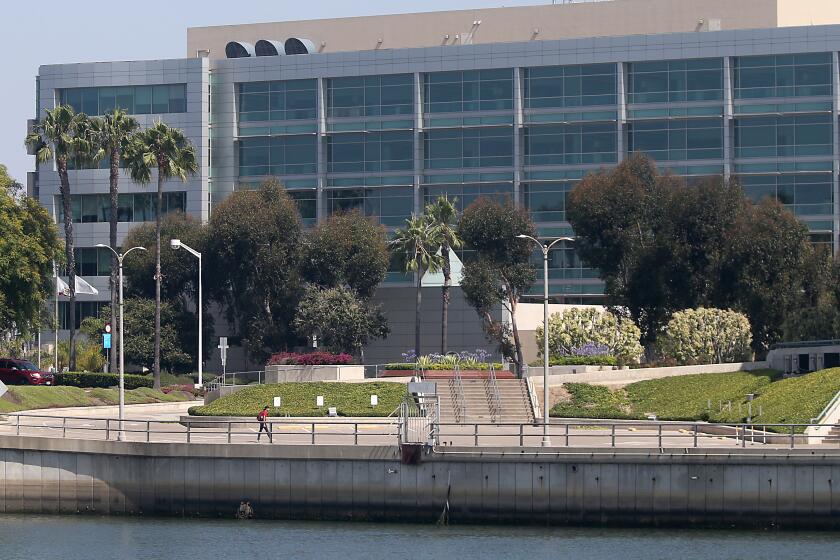Newsom signs bill that requires CSU to report sexual harassment cases, following Times reports

- Share via
California State University will soon be required to publicly disclose the outcome of sexual harassment complaints and investigations and strengthen several other measures of accountability under a bill that Gov. Gavin Newsom has signed into law.
Senate Bill 808, authored by state Sen. Bill Dodd (D-Napa), was introduced in February after a series of investigations by The Times found breakdowns in how Cal State handled sexual misconduct allegations against powerful campus figures, executives and students across the 23-campus network.
A recent state audit also found flaws in how CSU officials investigated and tracked complaints at the nation’s largest public four-year university system. The audit faulted the chancellor’s office for a lack of oversight and said campus officials failed to investigate accusations and improperly documented complaints.
“Discrimination of any kind [and] harassment of any kind, particularly on our college campuses, just cannot be tolerated,” Dodd told The Times on Tuesday. “This bill will make sure that our policies are followed in the state to make sure that laws are followed, and also that there’s repercussions when the law is not followed.”
Recent revelations about how California State University handled sexual harassment and workplace retaliation complaints have rocked the nation’s largest four-year public university system.
Under the bill, which had overwhelming support in the Assembly and Senate, the university is required to report annually to the Legislature the number of sexual harassment reports made to each campus and the chancellor’s office; the outcome of a sexual harassment case; whether a case was settled or informally resolved; the number of hearings associated with a complaint; and the amount of time an investigation took to complete. Campuses will also be required to publish the outcome of settlements. The new measures take effect next year.
The Times detailed breakdowns in investigations and reporting of sexual harassment and sexual assault accusations at two CSU campuses in Dodd’s Northern California district.
At Sonoma State, CSU agreed to a $600,000 settlement with the campus provost, who reported that several women had accused the president’s husband of sexual harassment. The former provost alleged she then faced retaliation by the president. The claims against the president’s husband were not formally investigated at the time they were reported. Both the president and her husband, who are no longer with the university, denied wrongdoing.
At California Maritime Academy, The Times found that long-standing concerns among faculty and students about sexual harassment and a culture of hate and misogyny toward transgender and nonbinary students went ignored by officials at the Vallejo campus for years. Some students who reported sexual misconduct and sexual harassment said their investigations dragged on, adding to fears of retaliation.
The Times also reported that discipline was not always imposed even when allegations against employees were substantiated. In one instance, for example, investigators found that a vice president acted inappropriately toward several women who alleged sexual harassment, but he was never disciplined or instructed to undergo training.
“There has to be a higher set of standards to be able to ensure that our students and our faculty members remain safe on campus to do the work that they need to do,” Dodd said.
Auditors found problems with how California State University handles sexual harassment complaints and investigations, including not tracking repeat offenders.
At a recent state hearing, lawmakers questioned whether top officials in the chancellor’s office would make changes without oversight from the Legislature.
“I don’t see how anyone at the top is going to be held accountable. I don’t see timelines and I don’t see a commitment at getting this done,” Assemblymember Dawn Addis (D-Morro Bay) said in response to comments by CSU officials.
In a follow-up letter to the CSU chancellor, lawmakers accused university officials of providing “evasive answers” and displaying a “lack of transparency” during the Aug. 31 hearing.
Vice Chancellor for Human Resources Leora D. Freedman wrote in a response that Cal State would implement all the recommendations in the audit and in an outside review by the Cozen O’Connor law firm by the end of 2026.
“We are instituting a broad array of solutions and improvements as quickly as resources and solutions allow,” Freedman said.
Dodd’s bill was co-sponsored by the California Faculty Assn. and CSU Employees Union, and was supported by the Board of Supervisors in Solano County, where the Maritime Academy is.
“By providing an annual report, it certainly is a step in that direction toward transparency and accountability,” said Charles Toombs, president of the faculty association, adding that he hopes the newly signed bill will enhance “protections for workers and students on our campuses.”
The CSU did not immediately respond to requests for comment on the legislation but has said previously that it will implement comprehensive changes and is hiring additional staff to improve the investigative process.
More to Read
Sign up for Essential California
The most important California stories and recommendations in your inbox every morning.
You may occasionally receive promotional content from the Los Angeles Times.














